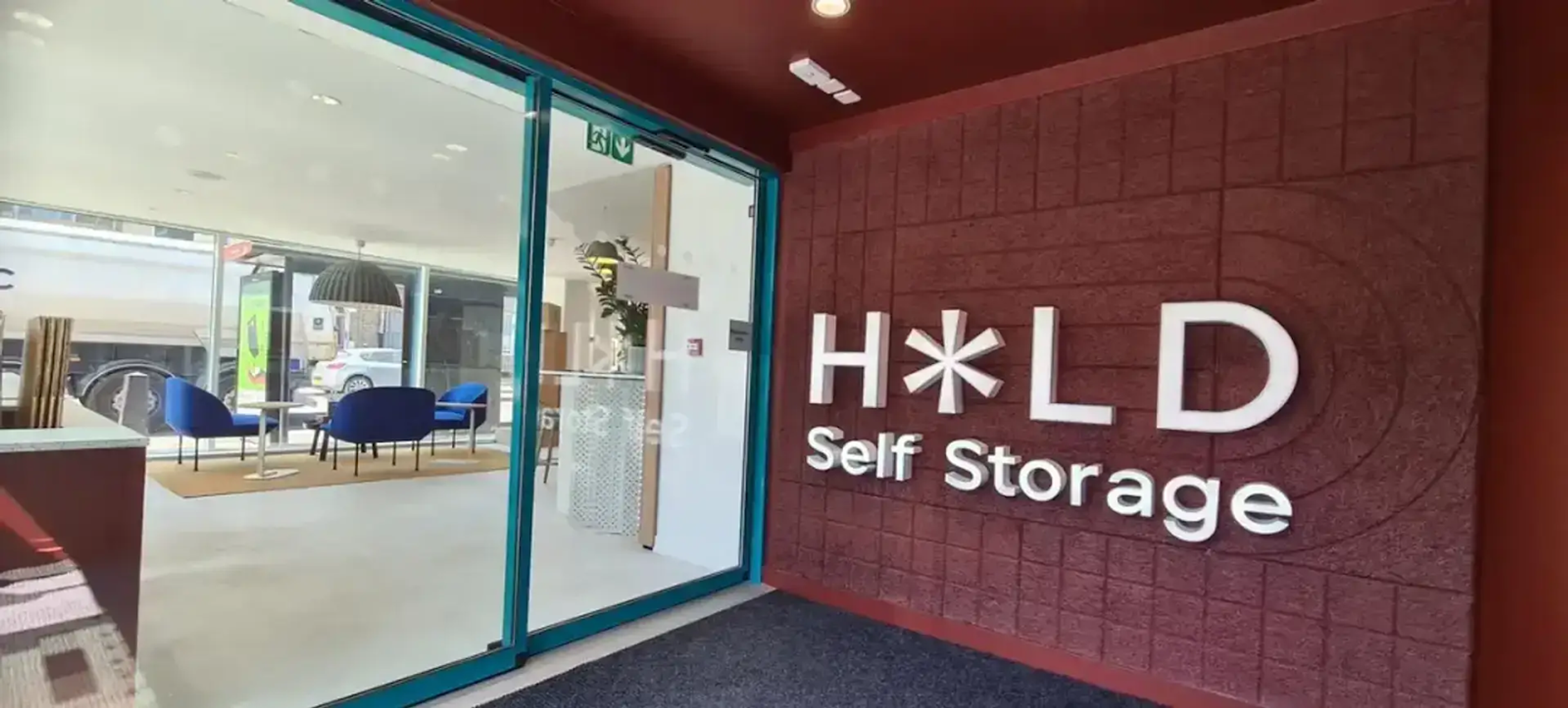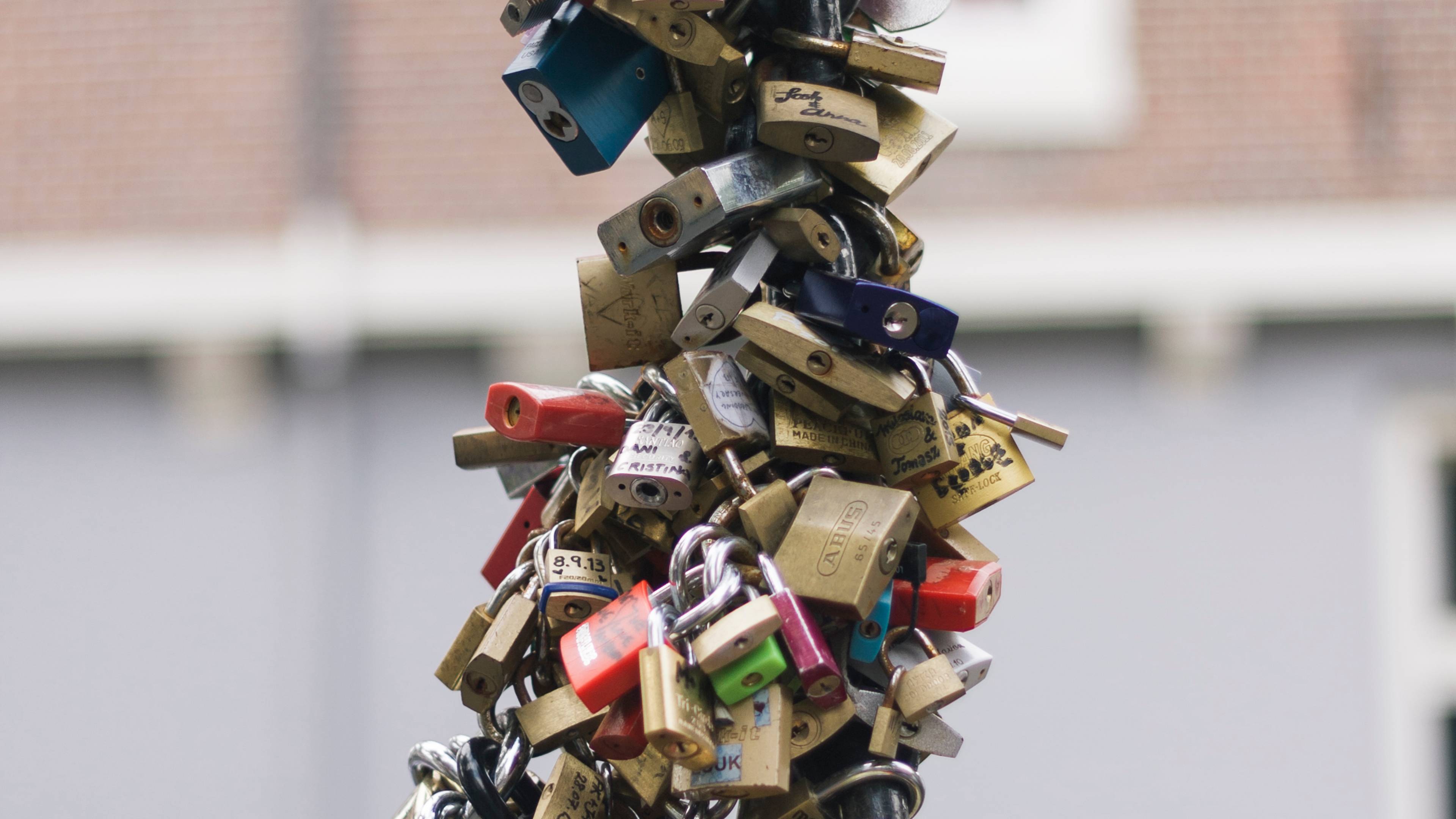Table of contents
- Understanding storage unit locks
- Legal considerations – Is it allowed to cut the Lock?
- Alternatives to cutting the lock
- If cutting Is the only option – What to know
- The Role of the Storage Facility in Access and Security
- The importance of communication with the facility
- Preventing lockouts – Tips for securing your storage access
Self-storage units are popular for keeping items safe outside the home, providing extra space when it’s most needed. Yet, sometimes accessing stored belongings can become unexpectedly challenging, especially if the key to the lock goes missing or the lock itself fails. This situation leads many to ask, if they could cut off their own lock for their storage unit. While the question is common, cutting a your own lock can have legal and practical life consequences that should be carefully considered.
Understanding storage unit locks
Storage units come equipped with many doors and a variety of locks to ensure that customers’ belongings remain secure. Self-storage facilities typically recommend or require specific locations and types of locks based on their security levels:

- Disc lock – Known for their durability, a disc lock is often the top choice for self-storage units. Their circular shape makes them difficult to tamper with, enhancing security.
- Cylinder lock – Some facilities offer cylinder locks that fit directly into the unit’s door latch, reducing the chance of tampering.
- Padlock – While affordable, padlocks vary widely in quality. High-security padlocks offer solid protection, but some basic models can be susceptible to cutting or breaking.
Choosing the right lock provides an initial layer of protection, helping to prevent damage from theft attempts and ensuring only authorised access to the unit.
Legal considerations for cutting locks
Cutting the lock off a storage unit isn’t always as straightforward as it sounds. Legally, most self-storage facilities don’t allow customers to cut locks themselves, as the lock and door mechanisms are considered part of the facility’s property. Unauthorised cutting may be viewed as tampering or property damage, which could result in additional fees, lease violations, or even liability for repairs.

In most cases, contacting the facility’s office for assistance is the best course of action. They may allow you access through alternative means, or they may offer their own service for cutting or replacing your own lock if you’re unable to access it. This approach ensures that any action taken is approved and avoids unnecessary costs or disputes with the tenant or facility.
Alternatives to cutting the lock
Before deciding to put bolt cutters in the lock, consider some safer alternatives that could save you time, expense, and trouble:
- Contact the facility – Many facilities have procedures for handling lockouts, and some may offer help during business hours. It’s best to call the office and explain the situation.
- Hire a locksmith – A qualified locksmith can open various types of locks, like a disc lock, without damaging the door or latch. This may come with a fee, but it can be more affordable than potential damages or fees from the facility.
- Check for emergency access options – Some self-storage unit providers have contingency plans for situations like lost keys, misplaced combinations, or broken locks. It’s worth asking if they can assist in unlocking your unit.
If cutting is the only option
If, after consulting with the facility, cutting your own gate lock becomes the only option, follow these guidelines to minimise damage and adhere to the facility’s rules:
- Use the right tools – Bolt cutters are often used to cut padlocks, though they’re not suited to all types of locks, especially a disk lock. The facility may specify tools that avoid damaging the door latch.
- Take precautions – Be careful when cutting the lock to prevent damage to the door or latch mechanism. A damaged door could result in repair fees and may violate your lease agreement.
- Follow up with the facility – Inform the office immediately after removing the lock. They may provide a new lock or require a specific type of replacement, which is essential to keep the unit secured and comply with facility policies.
The role of the storage facility in access and security
Self-storage unit facilities often have strict policies in place to protect and safeguard customers’ belongings. Security measures may include controlled access gates, CCTV, and secure lock requirements. If you’re locked out, these policies help ensure that access is restricted to authorised individuals only, protecting both your items and those stored in nearby units.
Most facilities will assist with lock-related issues, often at a small fee. These fees typically cover costs for a new lock or securing the unit once access is granted. Facilities are also known to have access policies that outline permitted actions in the event of non-payment.
For example, they may cut a tenant’s lock to prepare the property for auction or reclaim possession of the unit. Ensuring you’re in good standing with rent payments avoids any complications with access restrictions.
The importance of communication with the facility
Proactively communicating with the site is critical when dealing with lock issues. Contacting the facility for help, asking questions about policies, and requesting assistance ensures that you’re following established procedures. This may prevent misunderstandings, such as wrongful accusations of tampering, and helps the facility meet your needs as a person and a customer.
Facilities may require tenants to use specific types of locks, like a disc lock, especially in multi-unit buildings where security is shared across numerous units. By adhering to the facility’s guidelines, you’re more likely to find suitable and affordable solutions for any lock-related problems, ultimately safeguarding your belongings and maintaining good standing with the tenant and facility.
Preventing lockouts – Tips for securing your storage access
Avoiding lockouts is ideal for ensuring uninterrupted access to and store your belongings, especially if your stored items are essential or frequently needed. Here are a few proactive tips for preventing lockouts and ensuring you can always access your unit when needed:
- Have spare keys – Keep a duplicate key in a secure place or with a trusted person, such as a family member or close friend, for easy retrieval if you lose your primary key. they often come together when getting a set of new keys.
- Use a combination lock – Some self-storage customers prefer combination locks to avoid the issue of losing keys altogether. However, it’s essential to select a high-security combination lock recommended by the facility.
- Store key details securely – If you opt for a combination lock, record the combination code in a secure, memorable location, such as a locked note on your phone.
- Keep track of business hours – Familiarise yourself with the storage facility's business hours, as some locations only provide customer support during these times. Knowing when the office is open can help you plan visits or resolve access issues without delay.
- Stay current with payments – Ensure timely payments to avoid any restriction on access. Many storage facilities will lock units for non-payment, so keeping accounts up-to-date will help prevent such complications.
Following these steps will help you avoid the stress of a lockout, ensuring your items are always accessible and reducing the likelihood of needing to cut or replace a lock.
Conclusion
Losing access to your stuff in a storage unit can be a frustrating experience, but it’s essential to approach the situation with care and caution. Cutting a lock without permission may lead to legal and financial consequences, so the best approach is to work closely with the company and the facility, ensuring you’re following their guidelines and accessing your belongings responsibly.
By taking steps to prevent lockouts, understanding facility policies, and choosing the right lock for your unit, you’ll protect both your belongings and your relationship with the storage provider. If you find yourself locked out, remember that many facilities offer assistance, and a quick call to the office can often save time, prevent damage or lost everything, and provide a safe, authorised solution for regaining access.
HOLD Self Storage has all your self storage needs!
Need business storage, personal, or anything in between? HOLD Self Storage is here to help. With a friendly team, free 24/7 access, advanced security measures, and climate-secure storage units, our Kings Cross facility has everything you need to keep your belongings safe and sound.

Contact us today for a free quote or to learn more about our self storage service!
Frequently Asked Questions
Can I cut the lock if I lose my key?
No, it’s best to contact the self storage facility. They can assist you in opening the disc locks and storage unit without causing damage to the disc lock.
What happens if I fail to pay my rent on time?
If you fail to sign up to pay rent on time, the self storage facility may restrict access to your storage space until the unpaid rent is paid and cleared. Cutting the lock yourself may result in additional penalties.
Can I break the lock if I need immediate access to my unit?
You should not break your disc lock. Always contact the self storage facility for assistance with disc locks, even in emergencies.
Are there legal consequences for cutting a lock?
Yes, state laws and the lease or rental agreement you sign could penalise you for breaking a lock, including fines and responsibility for any resulting damage.
What should I do if I’m locked out due to late fees?
Discuss the situation with the self storage company or business to resolve the issue. They will likely work with you on regaining access once the outstanding fees are paid and cleared.


